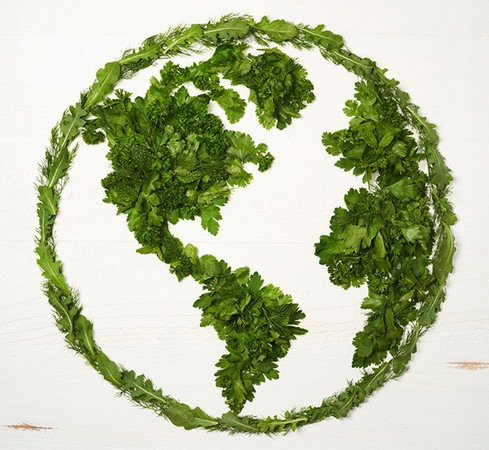This Earth Month, Seeds of Change, the largest exclusively organic seed brand in the country, says that its sales growth of 52% year over year can be attributed to a rise in eco-conscious consumers who are planting not just for their own health, but for that of a healthier environment. In a recent consumer survey, Seeds of Change found that 60% of gardeners say they are choosing organic seeds and organic gardening practices because it is better for the environment.

Seeds of change
"With eco-conscious consumers looking to do their part, many are turning to organic gardening not only for the quality of food it provides but the positive impacts on the environment," said Dave Thompson, General Manager of Seeds of Change. "It's really exciting for gardeners to see how something right in our backyards can have many further-reaching implications."
From seed to table
61% of organic gardeners said they elect to garden to control their food source, according to research by the brand. Some of the most popular seeds sold by Seeds of Change are also those commonly found on the Environmental Working Group's Dirty Dozen, a round-up of the most pesticide-contaminated fresh produce when not grown organically. Lettuce, kale, spinach, peppers and tomatoes, all found on the list, can be easily grown at home starting with organic seeds and managed without pesticides, better for those who eat the final product and the environment overall.
"Reconnecting with our food, having a real role in how it is grown and cultivated, brings us so much closer to the source," continued Thompson. "The quality of homegrown produce cannot be matched, and over the course of the summer you can plant your favorite seeds for the tastiest and freshest salads or grilled vegetables."
Succession planting, meaning gardeners can plant a second or even third round of seeds, will fill the table with fresh, organic produce well into autumn. Start this spring with long-maturing plants like tomatoes, pepper, and eggplant, and in the summer plant fast-growing produce like beans, carrots, and beets. In regions where the first frost isn't until late autumn, plant celery, broccoli, cauliflower, and cabbage in mid to late summer. Leafy greens including spinach, lettuce, and kale will thrive well into colder months for a salad to always be on the menu. Lastly, complete the produce menu with flavorful herbs like basil, parsley, and cilantro which are fast-growing in the summer heat and can be transferred indoors to be enjoyed once the weather turns colder.
A more intimate gardening experience
Pest control is always a challenge for any gardener, but for organic gardening, eschewing pesticides can lead to a more intimate gardening experience. "Picking off pests of course is a labor of love, but that up close and hands-on time in the garden is what so many organic gardeners love," continued Thompson.
To help rid a garden of pests without chemicals, best practices include committing to routine weed control to prevent them from taking valuable nutrients from the plants, incorporating beneficial garden bugs like ladybugs, praying mantises and lacewings which will eat many harmful pests and using mesh row covers over tender young seedlings to provide a barrier against pests.
For more information:
Seeds of Change
www.seedsofchange.com
